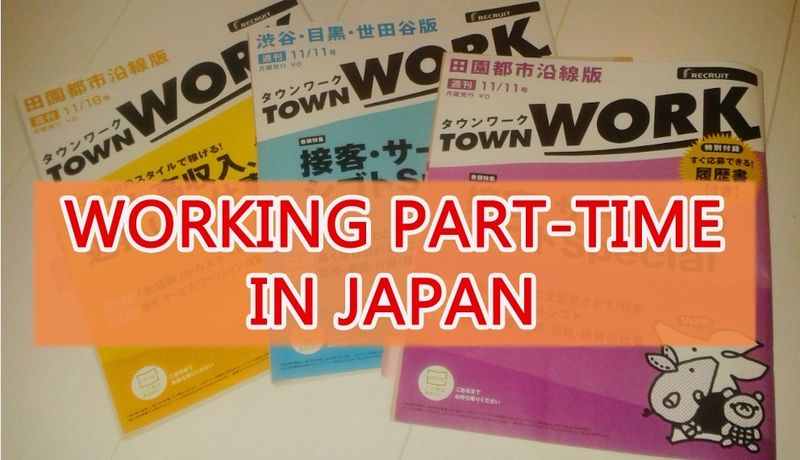Dec 21, 2017
What does Working Part-Time in Japan Mean?
Moving to Japan – or any other foreign country – is always a big step and brings new challenges. Finding the right place to stay, getting used to your environment and all the new things around you. Especially, finding a new job is a big topic, too. When I moved to Japan, in October 2016, I wanted to start slowly, first have around three months to arrive in Japan and settle into my life and then start to search for a job at the end of the year. I decided to start working part-time initially, because having a full time job can be very busy in Japan and I still wanted to have some free time for me.
Part-time jobs are also called Arubaito (アルバイト, coming from the German word Arbeit which means "work“) in Japan. But what is the difference between working part-time or full-time?

One of the most important differences might be the visa. If you want to get a part-time job in Japan you need a visa allowing for this in advance. Part-time jobs are normally not enough for getting a proper working visa in Japan. So, if you are searching for a part-time job, be sure you have a visa that allows you to work, like a spouse visa, student visa or working holiday visa. Notice that you are only allowed to work 28 hours a week with a student visa. Also, some visas prohibit working at adult entertainment business, such as night bars and clubs, and even pachinko parlors.
Let’s come to the salary. As a full-time worker you often have a fixed amount of money at the end of the month. As a part-time worker you get paid by the hours you worked. Often, you can decide the number of weekly hours by yourself depending on the job – you can work just a few hours a week, but also up to full-time. The hourly wage in Japan is typically around 1,000 yen, depending on the branch / place of work. It can be a little bit higher for night shifts. Also, working as a teacher often starts from 2,000 yen per hour. In contrast to full-time workers, in most cases, part-time workers also don’t get bonuses at the end of the year.
One big difference comes up with the topics of health insurance and pension. If you have a part-time job in Japan, these are often not covered. You have to take care of it yourself, like getting into the National Health Insurance and enroll for the National Pension System or something similar
As a part-time worker you normally can’t take paid days off. If you are not working, you don’t earn money. However, you can often be more flexible about taking unpaid days off while deciding your monthly schedule. This also can be a good point.
You might have noticed that there can be big differences. As a full-time worker in Japan you might have a regular income, insurances are covered and you have around 10 days of paid holidays per year. However, as a part-time worker your income might be changing from month to month, but you are more free in planning your free-time and other things in your life.
For sure, everyone has to decide for theirself what is personally better. I enjoy my life as a part-time worker right now, even though I don’t have so much money I can enjoy my life next to work. But maybe in a few years I will try to get a full-time job, too.
A German woman who made several trips to Japan did one year of Working Holiday. Started living in Japan again since October 2016 together with her Japanese husband. Loves music, cats, traveling and food.
Check out my Instagram account for your daily Japan vibes: https://www.instagram.com/yoko_lost_in_japan/



0 Comments